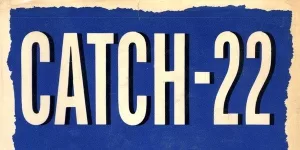There is a phrase: “History is written by the winners,” which is a very true statement. The integrity of this statement is especially seen when studying, for example, the Napoleonic Wars in detail. To this day, the issue of the Napoleonic Wars is still being researched, especially his campaign in Russia in 1812. Was it a tragic defeat for the French emperor, or is the other side of the story obscured by our prejudices and limitations of national historical narratives, especially under the influence of propaganda?
An interesting Russian historian, Yevgeny Ponasenkov, describes the picture in great detail from the other side. He confirms all his statements with documents from the archives that are simply impossible to argue with. Ponasenkov believes that history is a young science, often distorted by propaganda and ideology. Traditional views of Napoleon’s Russian campaign have been heavily influenced by these factors, creating a narrative that may not be entirely accurate.
The so-called “War of the Sixth Anti-French Coalition” is often considered Napoleon’s catastrophic failure, leading to the loss of his Grand Army and ultimately to his abdication. But is this the full picture? Ponasenkov urges us to look beyond the military events of the war and consider the broader implications in the context of world history. The war involved more than just soldiers on a battlefield; it was a clash of historical and civilizational systems and personalities of rulers as well. He suggests that the true victor in the battles of 1812 may not be the one we usually think of.
Ponasenkov insists that we must maintain an objective point of view, free from prejudice and nationalistic myths. This means recognizing that we cannot fully identify the Russian Federation with the Russian Empire of the early 19th century. We must also avoid the trap of talking about “moral victories” that can distort the truth and lead to inaccurate conclusions.
If we study history from simple textbooks that we are given in schools and universities, it turns out that it was Napoleon who, at the head of a whole horde, invaded unfortunate Russia. That Borodino was not a defeat, but almost a victory for Russia. That the shameful flight of Russian troops from the border was a “Scythian plan,” a whole strategy to lure the enemy into their boundless and shapeless territory. The talentless, corrupt, lazy – Kutuzov is the military genius of all time. And that Russia’s catastrophic defeat in the war was a triumph of Russian tactics! But the textbooks might be lying…
Let’s start with 1805:Russia’s accession to the continental blockade of England did not seriously affect the financial situation in Russia, but the financial collapse came as a result of the increase in defense spending in 1807 immediately after the signing of the peace Treaty of Tilsit with France. The treaty was a result of unsuccessful attacks on France in 1805, 1806, and 1807.
Already in 1810, Russian armies were on the border with the Duchy of Warsaw, ready to attack, while Napoleon did not have a single soldier there, only a garrison in Germany in one fortress.
In 1811, when Alexander was already fully prepared for war, Marshal Davout began to warn Napoleon about it in letters. But Napoleon seemed to be wearing “rose-colored glasses”, he did not want to start anything big: “He had a young wife and a son, he wanted to relax and was planning a trip to Italy in 1812, where the Quirinal Palace had been restored especially for this purpose…”
Afterwards, he was informed that Alexander was ready to attack! There are hundreds of such documents from Alexander’s headquarters stating that he plans to attack France in Russian archives which are shown in Yevgeni’s book.
Finally, in October 1811, Alexander gave the order to attack France. All the Russian armies begin to move and approach the Neman, but at that moment the tsar receives a letter from King Friedrich Wilhelm of Prussia: he is afraid to support the Russians because Alexander had already encouraged him to take part in the 1806 adventure that led to the Prussians’ defeat by Napoleon. Alexander urgently revoked the order, but the whole world already knew about the starting offensive.
It was only then that Napoleon finally began to assemble an army, since he had no troops in Europe, except for Spain. He got them ready in just a few months and only to repel aggression. There are many letters in which Napoleon asks his generals to strengthen fortresses in Europe. So what kind of an attack can we even talk about?
Soon after, Alexander broke off diplomatic relations. Russia declared war on France in the spring of 1812. According to official data, in 1812 the Russian Empire had 975,000 soldiers, most of whom were gathered on the border with the Duchy of Warsaw, while Napoleon had only 400,000 to repel the aggression (and half of them were “allies” who had been fighting against France for many years before). All this army is standing on the border, the tsar has managed to declare war but does not know what to do next…
Then Napoleon sent General Narbonne to Alexander with a peace proposal. But everything was already decided, the tsar had already left St. Petersburg with pomp, and all of St. Petersburg knew: “They were going to attack!” So, Alexander refused to Napoleon.
What could Napoleon do? That’s how the 1812 campaign started.
In 1812, the Battle of Borodino took place. It is traditionally considered a victory for the Russians, who managed to inflict heavy losses on Napoleon’s army. However, Ponasenkov points out that the Russian general Mikhail Kutuzov had larger forces than Napoleon and was in a defensive position. Despite these advantages, he still lost the battle and was forced to abandon Moscow, leaving behind thousands of wounded soldiers who died in the fires of Moscow while the Russian Tsar Alexander I had long been on the run, fleeing to the eastern part of the Russian Empire. Is this a victory?
Keep also in mind that the reforms provided by Napoleon were innovative at that time. The emperor created the “Napoleonic Code,” one of the most important contributions to the world. This set of laws made clear rules about property rights, individual freedom, and equality before the law, principles that form the backbone of many legal systems around the world today. The education system created by him served as a model for many Western countries. So did Napoleon lose after all?
Featured image: VCG Wilson/Corbis via Getty Images







